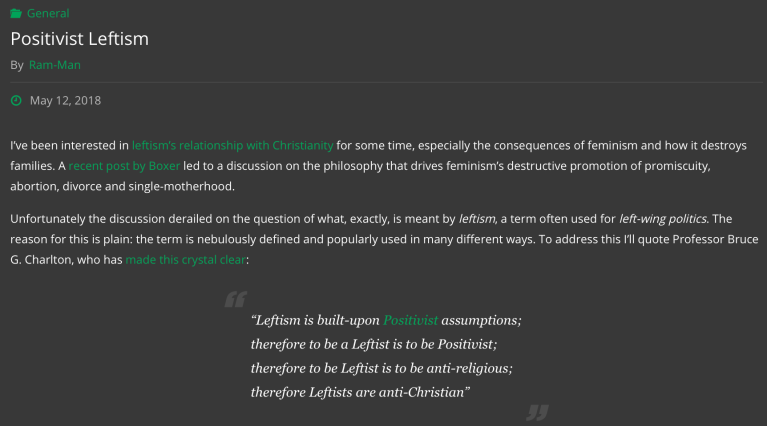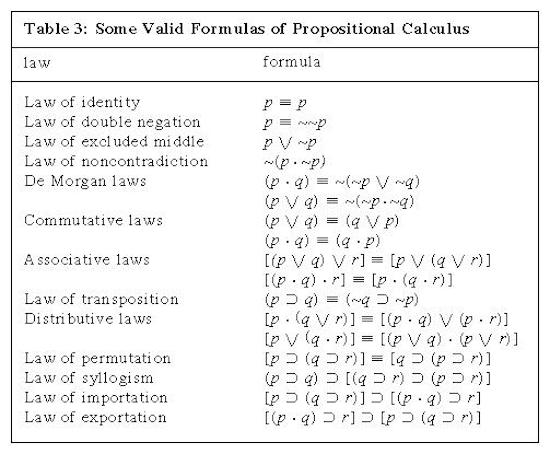 If I can do anything to help the people in the androsphere, it is generally to do what I get paid to do, by a big research hub, for free. What I get paid to do is to teach students how to think and write arguments. Some semesters, those arguments have been in the form of mathematical proofs, and other semesters, those arguments have been in plain English, originating in points that incipient lawyers and philosophers are practicing. Usually, my feedback strikes kids as a bit rough, but you have to take your punches in this life, and that’s that.
If I can do anything to help the people in the androsphere, it is generally to do what I get paid to do, by a big research hub, for free. What I get paid to do is to teach students how to think and write arguments. Some semesters, those arguments have been in the form of mathematical proofs, and other semesters, those arguments have been in plain English, originating in points that incipient lawyers and philosophers are practicing. Usually, my feedback strikes kids as a bit rough, but you have to take your punches in this life, and that’s that.

Brother Derek was good enough to linkback to an article on his blog, which contains a whole host of poor arguments. I’ll go through just a few here.
Bruce Charlton has a medical degree. He also has an academic master’s degree from Durham University, in the north of England. I got paid to go read one of my papers at Durham, a couple of years ago, and I know some of the faculty there. I like the place a lot, and it regularly churns out tons of thinkers who are brighter than I am. If you ever visit Durham, a quick trip to Hadrian’s Wall is interesting.
I don’t think it’s terrible for Charlton to give his opinion on politics, philosophy or economics; but, it should be noted that his degree is in literature, not politics, philosophy or economics, and if Derek quotes him giving his opinion, it’s dishonest not to point that out. Calling him Professor Charlton, and quoting him giving his opinion, is incredibly poor rhetoric, and it derails any points one might make, before the writer makes them.
All that aside, Bruce G Charlton is a completely discredited source on any topic, because he doesn’t believe in peer review. From nature dot com…

As Kripke and Wittgenstein would remind us, peer review is everything. Some measure of community is a pre-requisite to the notion of truth and meaning, and if you have no one to bounce ideas off of, you’re really just spouting “nine out of ten doctors recommend” nonsense.

They are approximations of truth, often really useful approximations, but ultimately are false because they are not true.
A couple of points:
1. Being “not true” is not a necessary and sufficient condition for being strictly false. This is very basic stuff, and if you are this illogical, you’re not going to win any arguments with serious feminist thinkers.
If you don’t know what I mean, consider these two propositions:
a. 1/0=5
b. 1=5
Proposition a is not true, because no one knows (at least with our conventional arithmetic) what the value of one divided by zero is. It doesn’t really mean anything, without a pre-existing axiom to define it. Proposition b, in contrast, is strictly false. By the principle we usually call ‘identity,’ 1 = 1, and 1 != 5. So there’s that.
truth cannot [sic] come from abstraction…
2. Truth can easily come from abstraction, and regularly does. If I write the proposition:
1 = 1
Then by the principle of identity, we can judge that proposition to be true. The numeral ‘1’ is abstract, inasmuch as it is both causally inert and observer independent. The same holds for the equivalence relation between ‘1’ and ‘1’.
I don’t mean to pick on anyone, but if you’re going to write arguments, then make them sound arguments. It’s better not to fraudulently use dodgy sources (like Charlton) and make sure you define the terms you use in the premises.
While Derek admits that the term ‘leftism’ has a very wide lexical range, he never bothers to define it for his argument. For that matter, he never defines ‘metaphysics,’ which is a serious discipline in the university, and which is sort of a joke at the bookstore, where it is used to denote things like crystals, finding one’s spirit animal, and nonsensical pseudosatanic occultnik texts.
Remember: if you can’t win an argument with me, then you stand no chance with our feminist enemies. Given that they’re jockeying to kill you and abuse your children, you have a positive (little joke there) duty to get good at logic and critical thinking.

During my last year of college I wrote a lot of Theory paper The amplitude love with all knowing your audience. A great deal time would not want to be content defining the concept or theory but rather applying it. And your opinion it.s this Correct
I have no idea what this article is about lol
But I would be hesitant in automatically assuming that to be a leftist= anti religious
I consider myself to be a mixture of liberal and conservative in my views but I also believe in God. I just happen to reject the traditional, conservative Christian position as I find it too hypocritical, judgmental, hyper critical and filled with self righteous fuck wits who I’ll be ashamed to call my “brethren”
Yet in saying that, there’s a lot of their views and opinions that I hold to, namely that Feminism is one of the most destructive and dangerous ideologies to ever infest the west
No, it’s nit-picky of you. I often give credit as title or profession and name. I presume that readers will not engage in the genetic fallacy (and use Google).
This is a very interesting, and lengthy, topic. To summarize: Peer review (i.e. consensus) is not itself a logical or mathematically valid way to arrive at truth. Calling it everything is, at minimum, hyperbole and at worst intellectually dishonest.
Helpful, yes, but not a prerequisite. There is nothing logically essential to peer review. Fleming, in practice, needed community to develop penicillin for human use, but the truth of the discovery did not. Nothing, in principle, prevented unilateral development for human use and using it to save lives.
(To avoid ‘poor rhetoric’, let’s be clear: the issue is objective vs. subjective truth. Positivism logically holds only to subjective truth claims, which is likely why peer review is so ‘essential’. But truth, especially moral truth, isn’t subjective. It’s essentially objective.)
Yes I did. Leftism is positivist, secular, and utilitarian.
I didn’t get more specific because (1) I was making an informal, short 500 word post; and (2) I wasn’t talking about specific forms. Variations of leftism disagree on the targets of utility and this doesn’t impact the argument.
I don’t know how to address this in only a few sentences. “1=1” is truthless/meaningless without application to reality (i.e. context). Change the context and the ‘truth’ changes. Abstraction is not concrete. If “1=1” as an abstraction, then it isn’t concrete. I apologize for not being clearer.
Consider instead whether something is strictly true, not strictly false. Fundamentally, any leftist principles chosen can never be fully and completely true. They may at times approach true, and occasionally perfectly align. But in totality, they are not complete, not true. If you promote some falsehoods, then you are promoting falsehoods. It doesn’t need to be “strictly false” to be damaging.
Take, for example, abortion: being wrong literally results in death. Not being strictly false doesn’t bring back dead babies. People are not abstractions to be weighed on a value scale, they are personal, made in the image of God.
Utilitarian thinking does not care about this, but this doesn’t make my argument illogical.
I doubt I could ever win an argument with you: your accepted premises differ from mine. The same goes with feminists (who are not very rational anyway).
Dear Peeps:
First of all, thanks for reading.
I think I understand what you mean, but if we’re going to talk about stuff, we ought to define our terms at the beginning, so that everyone knows what we’re talking about.
This is the second most common reason that feminists win dumb arguments (the first is appealing to emotions). They use vague and/or ambiguous terms, and then constantly shift the lexical range around, rather than addressing their own inconsistencies. No matter how often they do this, most men never seem to address the underlying rhetorical dishonesty in their communicative praxis.
Suppose I was hired to teach your kids how to do arithmetic. Being the asshole that I am, I might find some consistent, but semantically invalid redefinition of the addition operation. Suddenly, the kids in my classroom are engaging in what Derek would call the pursuit of truth. They’re also, from their perspective, communicating meaningfully. It’s only when the kids go home and spout gibberish to their parents, that they’ll be corrected and I’ll be (we can hope) fired.
This isn’t my argument, of course. A guy named Saul Kripke came up with it. He called his consistent but non-conservative new operation ‘quus’ (like plus, but with a ‘q’).
https://www.amazon.com/dp/0674954017
That, in a nutshell, is the benefit of peer-review. If we’re going to use language, we have to be open to the possibility of inconsistencies. If we have a language with only one speaker, then the speaker can redefine terms on the fly, without ever worrying about making sense. He’ll have no one to correct him, and it’s fair to say that he will never approach a meaningful use of the language in question.
You either haven’t read this article, or you haven’t understood it. My money is on the first option, given that you’ve slipped back into dishonest rhetoric rather than address the problems in your own rebuttal. You’re still using vague terms you don’t define, and you’re making bad arguments that you can’t support, while knocking down straw-men.
Kleene logic is a good example of a many-valued logic that accounts for the differences (which you have yet to address, while relying upon) between “not strictly true” and “false.”
https://plato.stanford.edu/entries/logic-manyvalued/
Best,
Boxer
I’m trying to make sure I am understanding you correctly – you say skeptics should stop being attracted to men and that skeptics are those who don’t take the Bible at face-value. Does the fact that they take a back- door approach to the text make you conclude they are not heteros?
In case I failed, I was trying to make a funny. I couldn’t follow your philosophical inside baseball, but I also don’t think you’ll find any group of people who argue their own cause well and that wouldn’t make you feel embarassed. Would a group of Boxers do you right even?
I think you started off with an opinion of taste, “Frank K’s post is an example of kooky thinking” and then went to a more objective discussion of concepts (would your post be called ontological?). That’s not persuasive to me, but like I said, I got lost in the last bit.
But here’s the thing, and this goes with your current post about aggregate-book, I badly want to read men firmly demolishing the academy’s stronghold of feminism, but they, as you have pointed out before, express frustration ( as ad hominen) instead.
I would love to see a good discussion and refutation of Friedan in the men’s sphere, for example. Would that be boring to you? Why do you think something like that hasn’t been done ( or has it, and I just missed it?)
Dear Swanny:
Thanks for reading…
American liberals argue their cause very well. That’s why they’re continuing to win.
American conservatives, on the other hand, don’t really have any strong arguments. That’s why everyone thinks George Will is a moron. They seem to be all for open-borders and tax-cuts, but when asked why, they can’t really point to a teleology or any intermediate goals. Thus American Conservatism isn’t an ideological apparatus. It’s more like a psychological mood, that seems to have to do with continuity. Nearly everyone in the U.S.A. immigrated from other places, so lets throw the doors wide open. There weren’t any taxes immediately following our revolution, so lets abolish them now (first for the rich, then maybe for the rest of us peons).
The foundation of this sort of critical theory was constructed by an old-school feminist (an equity feminist) named Esther Vilar. You could use her work to launch a specific critique of Friedan quite readily. If you wanted to start a blog featuring such material, I’d be proud to link to it. If you just wanted to write such an article, I’d be glad to publish it here.
Best,
Boxer
I see where you are coming from better, thanks. I agree that libs are effective but so is Santa Claus.
I’m reading a book called “The Conservative Mind” and I think it is a sample of effective writing, but probably below the rigorous standard you are used to.
I downloaded a copy of the Vilar book, thanks.
I’m thinking more along the lines of average church-going guys having a response to Friedan. Stacy McCain has done a great job refuting several 2nd wave feminist philosophers, which I would love to see from guys at my church. It’s as if my brothers agree with Friedan, that it is a problem if women identify as wives and mothers and not as actualized career gals.